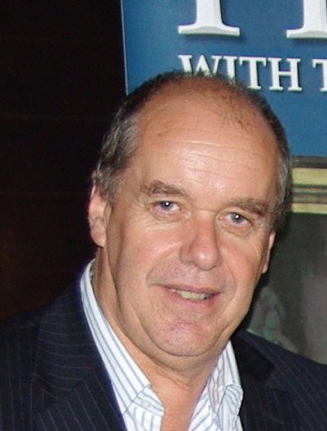Congratulations to the CRCWSC’s Nigel Tapper, President-Elect of the IAUC
A key member of the CRCWSC’s integrated research projects (IRP1 and IRP2), Nigel Tapper has been elected President of the International Association of Urban Climate (IAUC).
Professor of Environmental Science at Monash University’s School of Earth, Atmosphere and Environment, Nigel will serve as President for four years from August 2018, following his four year term as an IAUC board member.

We chatted to Nigel about his upcoming role, his plans for the IAUC, and his current work:
First, congratulations Nigel on your appointment. Can you tell us about the IAUC and what it aims to do?
Nigel: The IAUC is a scientific association of more than 2000 academics and researchers around the world who work in the rapidly evolving field of urban climatology. It represents the interests of this group with the many other relevant scientific organisations globally. We want to ensure urban considerations are at the fore of critical discussions, such as debate about the impacts of climate change, and adaptation to climate.
What are you looking to achieve as IAUC President?
Nigel: I want to maintain the excellent work of my predecessors in supporting the work and networking of the urban climate community. I’ll also look to strengthen the IAUC’s influence, profile, and membership in global climate policy and discussions.
You work at the CRCWSC and Monash University too. In those roles, what projects do you have underway this year?
Nigel: I lead a Monash research group working on fundamental and applied research on urban climate and climate adaptation in cities. The team has been part of the CRCWSC’s economic evaluation framework project (IRP2): we’ve done climate modelling of water sensitive urban design (WSUD) scenarios to determine the economic benefits on health, energy consumption etc., and we’ve helped measure and model the outcomes of the Adelaide Airport stormwater irrigation for cooling trials. We are also involved in the CRCWSC’s work on water sensitive outcomes from infill development (IRP4).
What research would you like to tackle next?
Nigel: I’m thinking about part retirement in the next couple of years, but I still have a couple of research ‘irons in the fire’. I’m working with Monash University Provost Marc Parlange to develop new models of urban climate that use a technique called ‘large eddy simulation’ (LES). I’m also working with colleagues at the World Meteorological Organisation to develop ‘essential climate variables’ that represent human adaptation to climate change at the global scale.
Finally, what takes up your time away from your professional work?
Nigel: I really enjoy getting my hands dirty, gardening, landscaping and building things, both at home in Camberwell, Melbourne, and at our beach holiday house on the Mornington Peninsula.
Nigel’s other affiliations
Cooperative Research Centre for Water Sensitive Cities
World Meteorological Organisation’s (WMO) World Climate Research Program (WCRP) / Global Climate Observing System (GCOS) Terrestrial Observation Panel for Climate Change
Co-Chair, WMO WCRP/GCOS Task Team for GCOS Surface Reference Network
How you can contact Nigel
Call +61 3 9905 2931
Email nigel.tapper@monash.edu